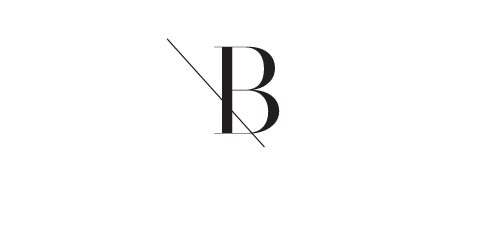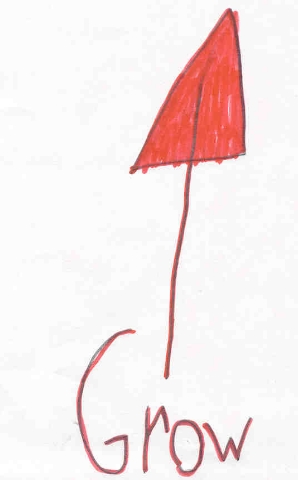It’s hard to be 23. I’m not a kid but I’m not considered an adult either. I’m most frustrated about the fact that I don’t feel like I’m the person that I should be. —Anonymous blog reader
Bar Mitzvah. Sweet Sixteen. Quinceanera. Circumcision. Every culture has significant rites of passage which signify crossing the threshold from childhood into adulthood. Whether there’s a Latin American spiritual presentation like in a quinceanera, or a Kenyan community event like a circumcision, the line of demarcation clearly grants someone access to sit at the adult table of life. Gone are the kiddy chairs and plastic plates, you’re an adult.
But modern Western culture doesn’t have clean transition lines and stepping stones in life. For this reason—and many others—adulthood in the West is idealized, unclear, and difficult to define for those stuck in the 18-30 age medium. Leading sociologists are determining that certain characteristics of adolescence are now extending late into people’s 20s and early 30s. One physiologist speculates that there now exists a new phase of life between 18-25, coined as emerging adulthood.
To simplify this for us all, I will refer to the great philosopher of our time—Britney Spears—and quote her saying, I’m not a girl. But not yet a woman. Not a child, not yet an adult, but something like a delayed junior high experience with bad clothes, no job, and living with your parents.
It’s okay to not have it all together and all figured out. And it’s okay to be broken and it’s okay to ask for help. —Julie, blog reader and writer
Growing up is scary in an economy where jobs are scare and culture is changing. In reading blog comments and having multiple discussions with men and women during the in-between season of life (post-college, pre-calling), I have a great amount of empathy. Though my life has dramatically changed in the last 16 months, I still feel like I’m not a real adult; like a toddler dressing up in high heels and lipstick, I look the part but fail in the delivery.
But my friend Kyle has encouraged me to fail gloriously. In doing so, it allows others to have the permission to do so as well. I’m not a theologian, psychologist, or sociologist, but I love learning about cultural trends and how they pertain to the church, our lives, and love.
The next two days we’ll take a look at how shifting culture perpetuates the Peter Pan syndrome (I don’t want to grow up), how the sexual revolution has made marriage and relationship difficult, and how we can act like adults even when we don’t feel like we are.
Intermixed will be the questions some of you asked in yesterday’s post. Thanks for your comments and sharing your fears. I’m right there with you!
Questions, comments, and/or clarifications are open for discussion. For those stuck in the emerging adulthood stage of life, it’s never too late to have a quinceanera! We Hispanics know how to throw a party!
Living in the Wonder Years,
Bianca [aka Winnie Cooper]




Can 35 still be considered emerging adulthood? ; )
I hope so! I’m turning 32 on Friday and I feel like I’m “emerging” into adulthood, at least I’m heading in the right direction 🙂
I’m so scared of 32! I’m almost 2 months behind you. When did we grow up?
“how we can act like adults even when we don’t feel like we are.” I totally dig that line! I feel like I’ve had many moments in the past 8 months where I had “adult situations” but I still feel like such a kid! I’m 27. When I was a kid, I looked at 27 year olds and thought of them as adults. Now that I’m here, I still feel like a little girl playing house with a real man who happens to wear a wedding band on his finger. lol 🙂 I’m excited for the next several posts!
I feel you! Thanks, Carrie 🙂
Thank you Bb(:
I love you, pops! You’re my favorite brother EVAH!
I’m 22, a college grad, and say at least once a week that I don’t want to grow up. It has less to do with being responsible and living in my calling than with not wanting the baggage I saw so many “adults” carry with them through life. It seems like every adult has it all together and knows how to do all of these adult things. I’m never going to put on a show to make people think I know what I’m doing. I will always be the fumbling newbie in the corner who is making a fool of themselves trying to figure out how to do this. And I’m okay with that. I like asking questions and learning new things. It makes me excited to live life.
Hey Kim! Thanks for your perspective. I agree that it *seems* like everyone has it together but as someone almost 10 years older than you, we don’t. Keep your head up and embrace your age and calling.
I just turned 30 And feel more like a kid than ever. I have a career and live on my own. In my 20’s i was so focused on achieving. Now in my 30’s im tired of trying to prove myself. I want to live, love and be free. I love it! Its okay to be 30 and go to work with pink glitter nails. I wish someone would have told me that at 25.
Bianca quoted me on her blog! Sweet! I also can’t wait to read the next several posts. I turn 32 in June, so I’m not too far removed from my 20s, but it feels like eons away. Can’t wait!
Of course! And I linked out to your blog. I turn 32 on Friday?! Where are our canes and walkers? 😉
Thank you so much! I’m waiting to have a cane custom made. I’m thinking pink and bedazzled.
I hope you have a wonderful birthday! Let me know how 32 feels 🙂
I would have to agree. I honestly did. It feel like a full fledged adult until turning 30. Now that I’m 31 I still feel I’m adjusting to it. It makes me sad when I meet people from other cultures who had their rites of passage and stand in their adulthood with confidence. I brought it up to a group of dudes once and they thought that idea was stupid (goes to show the immature nature of our “adult” thinking in America). I guess Blink 182 said it best, “nobody likes you when you’re 23” lol. Or in our case, 18-30 🙁
So looking forward to these posts, Bianca. I had never thought about the fact that Western culture has kind of abandoned the “rites of passage” traditions. The hardest thing for me in this time of life (I’m 25) is figuring out that things will still change even though I’m out of college. That sounds strange – basically, when I got my first full-time job a few years ago I suddenly felt panicked that I had backed myself into a corner, and since I was out of school, my life would never change again. And the decisions I was making right then (ie. to work in HR) were determining what I would do for the rest of my life. It sounds silly, but it felt real. Now I’m realizing that it’s scary to think that I don’t know what my life will look like in the future, but it’s also freeing. It’s a strange time.
Wow how different my path is. At 23 I had just graduated from college, got married, and had my first child! I feel as though I lived an entire lifetime in my 20s. One month before my 30th I found out I am getting a divorce. Now suddenly at 30 I am a single mom with 2 kids, unemployed, and starting over. The beauty is that the struggles of my lifetime lived in my 20s is that I was saved on Easter day in 2009. And so with a million unknowns awaiting me I have certainty and hopeful expectancy that no matter what comes my way God will be with me.
I think in the 21st century with all the new life possibilities we should redefine what it means to be an adult. Some of us will never marry or bear children but I feel like that should be okay. We can still live fulfilled lives and not have the perfect career. The whole game of Life way of living is played out. I think we should do as we please regardless of age. I mean who really knows what they want in their late teens and twenties? I am 24 by the way. I also think people should start college at 20 because I feel people need time between high school and college. There is too much pressure to know who you are too soon in life. I feel like after 18 society should just leave the door open.